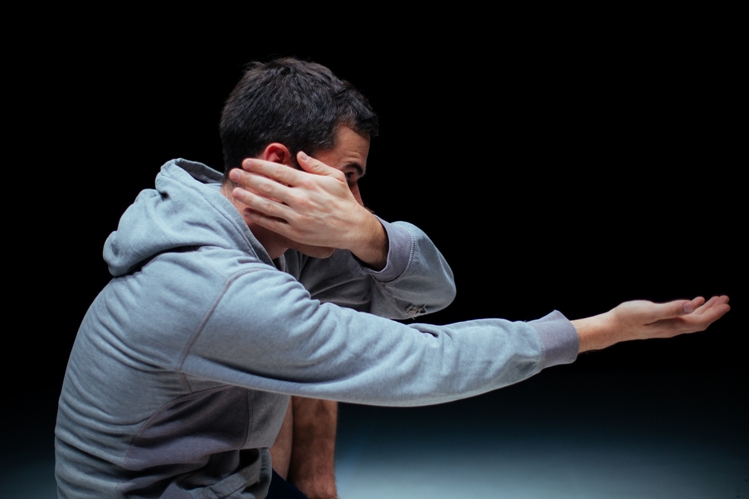Touching without Touching in "Trança" de Thiago Granato
Abstract
"Trança" is an exploration of the constitutive alterity of being: a choreography based on bodily practices that search for those others who are part of who I am. In this solo, Granato intends to summon two contemporary choreographers through his body. This apparently impossible initiative works as a trigger for a series of bodily practices that articulate the conditions for the encounter with the other –from active listening to the insistence on exploration, groping and search– all made explicit in the paradoxical action of touching without touching, a gesture that deliberately avoids the instrumental appropriation and the semantical capture relative to the sense of touch. The purpose here is to start a little before that, thinking about the otherness that exists in me by contemplating the other in its essential mystery and thus, from this perspective, generating the conditions for the appearance of that place in-between; of that space in which an encounter is possible. This article reflects on the different ways in which the imaginary construction of otherness is embodied in a performance. In Trança, the fabulation of the other allows us to explore a diversity of relationship forms that put us, as an audience, in places from which to experience and make visible the subtle relationships that emerge from the invention of the other. The stage contains this power to imagine otherness. The approach proposed in this article analyzes the aesthetic procedures that build these imaginary others on stage and indicate the possible forms of relationship that derive from these different fabrications of otherness. The comments of the pieces are nourished by ideas about otherness and relationship developed by contemporary philosophy.Downloads

Copyright (c) 2020 telondefondo. Revista de Teoría y Crítica Teatral

This work is licensed under a Creative Commons Attribution-ShareAlike 4.0 International License.
Los autores/as que publiquen en esta revista aceptan las siguientes condiciones:
-
Los autores/as [traductores] conservan los derechos de autor y ceden a la revista el derecho de la primera publicación, con el trabajo registrado con Licencia Creative Commons Atribución-NoComercial-CompartirIgual 4.0 Internacional, que permite a terceros utilizar lo publicado siempre que mencionen la autoría del trabajo y a la primera publicación en esta revista.
-
Los autores/as pueden realizar otros acuerdos contractuales independientes y adicionales para la distribución no exclusiva de la versión del artículo publicado en esta revista (p. ej., incluirlo en un repositorio institucional o publicarlo en un libro) siempre que indiquen claramente que el trabajo se publicó por primera vez en esta revista.
-
Se permite y recomienda a los autores/as a publicar su trabajo en Internet (por ejemplo en páginas institucionales o personales).










